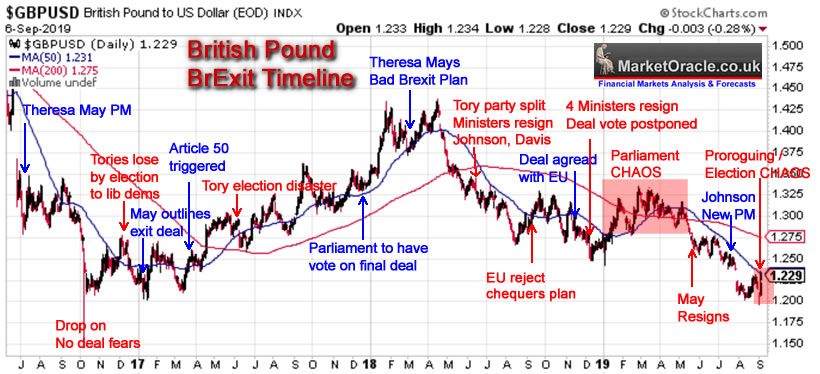I have no problem with Keynesian austerity during an economic boom. The point I was making is that the numbers you're talking are way too high. Making the economy grow at a "slightly slower rate" is fine. But cutting Government spending by £50bn in a year when the economy grew by about £70bn is absurd, that's 70%. And that's before we look at the compound effect of cutting growth by 25-70% year on year for 7 years in a row.
The only reason you're suggesting it is because you've reasoned backwards. You've started with a number that would impact on the total debt post-financial crash, divided it over the years Labour were in charge and got your answer. What you didn't do was sanity check the answer. The numbers you're talking about are way too high and the fact that you didnt understand that growth would be impacted is telling. If you want to discuss the impact of a surplus in the £5bn range back in the mid 2000s, great, lets do it. Ten times that figure is nonsense though.
Of course I understood growth would be impacted, I stated as such in my post. My point was that throwing someone else's money into the economy whilst it's already growing quite substantially in order to artificially inflate GDP growth further isn't a good idea . If spending was tied to around 34% of GDP then yes we'd have had slower GDP growth, but that wouldn't have been a bad thing. If you look at GDP growth 1998 and 1999 whilst our spending was around 34% of GDP we were still growing at a not too shabby 4.5 - 5% per annum; of course this isn't as aggressive as the 6% we were experiencing in 2005-06, but again I disagree that 6% GDP growth is a good thing on the back of spending someone else's money.
You're also looking at one year in isolation (2007) where the spend to GDP ballooned to 39% despite already large GDP growth. If you look at for example 2001 the spend to GDP was 34.5%, sticking to 34% would have been a reduction in spend of under £6b and essentially no surplus, with an increase of a still healthy more than 4% year on year. Likewise you're ignoring that the reduction in non-productive interest due to lower gross debt would have be invested in the economy and been productive which would mitigate some of the difference.
I wasn't reasoning backwards... I was looking at the reasonable spend to GDP we had in 1998 - 2000 (34.4%, 33.9%, 34.6%), along with the 4-5% GDP growth we were experiencing at that time and looking at a scenario where we maintained spend to GDP , rather than allowing it to balloon to 39+% in order to artificially inflate economic growth by 5.5% - 6% GDP growth. The fact that there was a budget surplus of £15.7b in 2000 shows that this kind of surplus is comfortably achievable and could have been achievable for the following 7 years if spending increased in line with tax receipts (I'd argue this could have easily increased in line with GDP).
It's also worth reiterating that the increase in spend wasn't productive during this period due to government spending money without rhyme or reason, so it wouldn't have a linear effect on GDP growth. Some of this spend went directly into the pockets of CEO's who ripped off government and took this out of the economy (the shareholders of my business did exactly this, inflating public sector contracts by up to 25% during this period).
The difference between your £5b surplus in 2007 which equates to a spending reduction of £50b and my figure of £50b surplus or spending reduction of £95b (plus economic reduction) though is something we'll have to split down the middle at around £27.5b surplus... or agree to disagree!
Can you name a country on that list that doesn't either a) have no public debt or interest payments to make (or even large sovereign wealth funds and therefore large net receipts) due to previous frugality; or b) huge debts combined with monumental black holes in their finances (pension, current deficits, student debts, health black holes etc).
Using the examples of the majority of those countries who are massively up shit creek due to huge governmental mismanagement and are putting their abject failures over the last 2 decades onto their children and their children's children as evidence is strange. How about Ireland as a much better example:
2010 spend to GDP - 65.1%
2010 GDP - $222b
2010 Debt % GDP - 86%
2010 Deficit - £32.1b
2018 spend to GDP - 25.7%
2018 GDP - $334b
2018 Debt % GDP - 63.6%
2018 Surplus - £0.1b
In 2010 Ireland had a greater deficit to GDP ratio, a much larger debt to GDP and a much higher spend to GDP than the UK. They now have a budget surplus, much lower debt to GDP and much lower spend to GDP.





